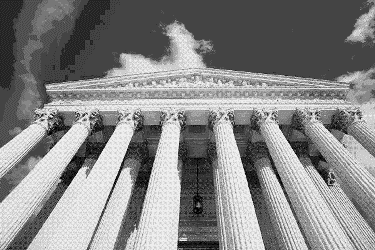|
International
Studies
Certificate
Requirements
Program
Competencies
Check
Sheet
Faculty
Liberal
Arts Home
PC
Home
|

|

Students enrolled
in the International Studies Certificate
will have the opportunity to broaden their horizons and their understanding
of our increasingly interdependent global society.
The Certificate approaches broad cultural issues and includes
a strong emphasis on world politics and religions.
It also includes developing proficiency in cross-cultural communications
and the capacity to navigate world cultures.
Proficiency in a modern language is also an integral part of the
Certificate
Certificate
Requirements
Program
Prerequisites: Credits: 6
ENG101 First-Year Composition (3) OR
ENG107 First-Year Composition for ESL (3) 3
CRE101 Critical and Evaluative Reading I (3) OR
Equivalent as indicated by assessment 3
Required
Courses: Credits: 25
HIS/PHI/REL243 World Religions 3
POS120 World Politics 3
POS125 Issues in World Politics (3) OR
POS140 Comparative Government (3) 3
Any Foreign Language Courses with prefixes ARB, CHI, FRE, GER,
GRK, HEB, ITA, JPN, POR, RUS, SPA OR Equivalent
Completion of one foreign language is recommended, e.g., SPA101
and SPA102, OR
SPA101AA and SPA102AA 8
Any Advanced Foreign Language Courses with prefixes ARB, CHI,
FRE, GER, GRK, HEB, ITA,
JPN, POR, RUS, SPA OR Equivalent
Completion of one foreign language is recommended, e.g., SPA201
and SPA202, OR
SPA201AA and SPA202AA 8
Restricted
Electives: Credits: 9-10
Study abroad credit may replace courses identified as electives
with the approval of the Program
Director or Department Chairperson.
ASB102 Intro to Cultural and Social Anthropology 3
BIO105 Environmental Biology 4
COM263 Elements of Intercultural Communication 3
ECN111 Macroeconomics 3
ECN112 Microeconomics 3
GCU121 World Geography I: Eastern Hemisphere 3
GCU122 World Geography II: Western Hemisphere 3
GPH111 Introduction to Physical Geography 4
HIS101 History of Western Civilization Middle Ages to 1789 3
HIS102 History of Western Civilization 1789 to Present 3
HIS110 World History to 1500 3
HIS111 World History 1500 to the Present 3
HIS113 History of Eastern Civilization to 1850 3
HIS114 History of Eastern Civilization 1850 to Present 3
HIS145 History of Mexico 3
IBS101 Introduction to International Business 3
POS180 United Nations Study 3
Free
Electives: None
ISC
Check Sheet
Top
Program
Competencies
1.
Describe the influence of world religions on social, economic,
and political developments. (HIS/PHI/REL243)
2. Describe similarities and differences among the beliefs, traditions,
and practices of major world religions. (HIS/PHI/REL243)
3. Delineate the historical development of interstate relations
and the place of the nation-state in that development while describing
relevant issues such as national security, war, economic integration,
trade, etc. (POS120)
4. Distinguish, define, and depict the chief characteristics of
the three levels of analysis--individual, state, and international
systems--and the method of arriving at policy choice decisions.
(POS120)
5. Describe the differences between policy-making framework and
motives inherent in the approaches of realism versus idealism.
(POS120)
6. Analyze the role of scientific inquiry in the field of international
relations. (POS120, POS125)
7. Differentiate and make connections between economic and political
issues and questions that affect world politics, and list the
various analytical and theoretical positions used to explain world
politics. (POS120, POS125)
8. Describe the issue of change in the international environment
and those forces that may initiate their change, including the
distinction between an international current event and a current
international issue. (POS120, POS125)
9. Explain the concept of super power and hegemonic control, decline,
and ascension. (POS120, POS125)
10. Describe the differences in political economic terms among
neomercantilism, liberalism, and socialism. (POS120, POS125)
11. Distinguish comparative methodologies developed to compare
various political systems of government, including unitary, federal,
and confederal government models. (POS120, POS140)
12. Compare the election practices in a selected democratic or
open society with those of a non-democratic or closed society.
(POS120, POS140)
13. Compare and contrast open and closed nations relative to the
organization of their executive systems and relative to the operational
characteristics of their representative assemblies. (POS140)
14. List major components of justice found in open societies,
and state how they differ from practices of justice in closed
societies. (POS140)
15. Demonstrate communication skills in a selected foreign language
course sequence. (Any Foreign Language Courses with prefixes ARB,
CHI, FRE, GER, GRK, HEB, ITA, JPN, POR, RUS, SPA, i.e., SPA101
& SPA102 or SPA101AA & SPA102AA OR SPA201 & SPA202
or SPA201AA & SPA202AA
Program
Outline and Competencies
Top
Faculty
Dr.
Albert F. Celoza
(602) 285-7185
Office A-136
E-mail: albert.celoza@pcmail.maricopa.edu
Eddie
Genna
(602) 285-7965
Office A-127
E-mail: eddie.genna@pcmail.maricopa.edu
Top
|